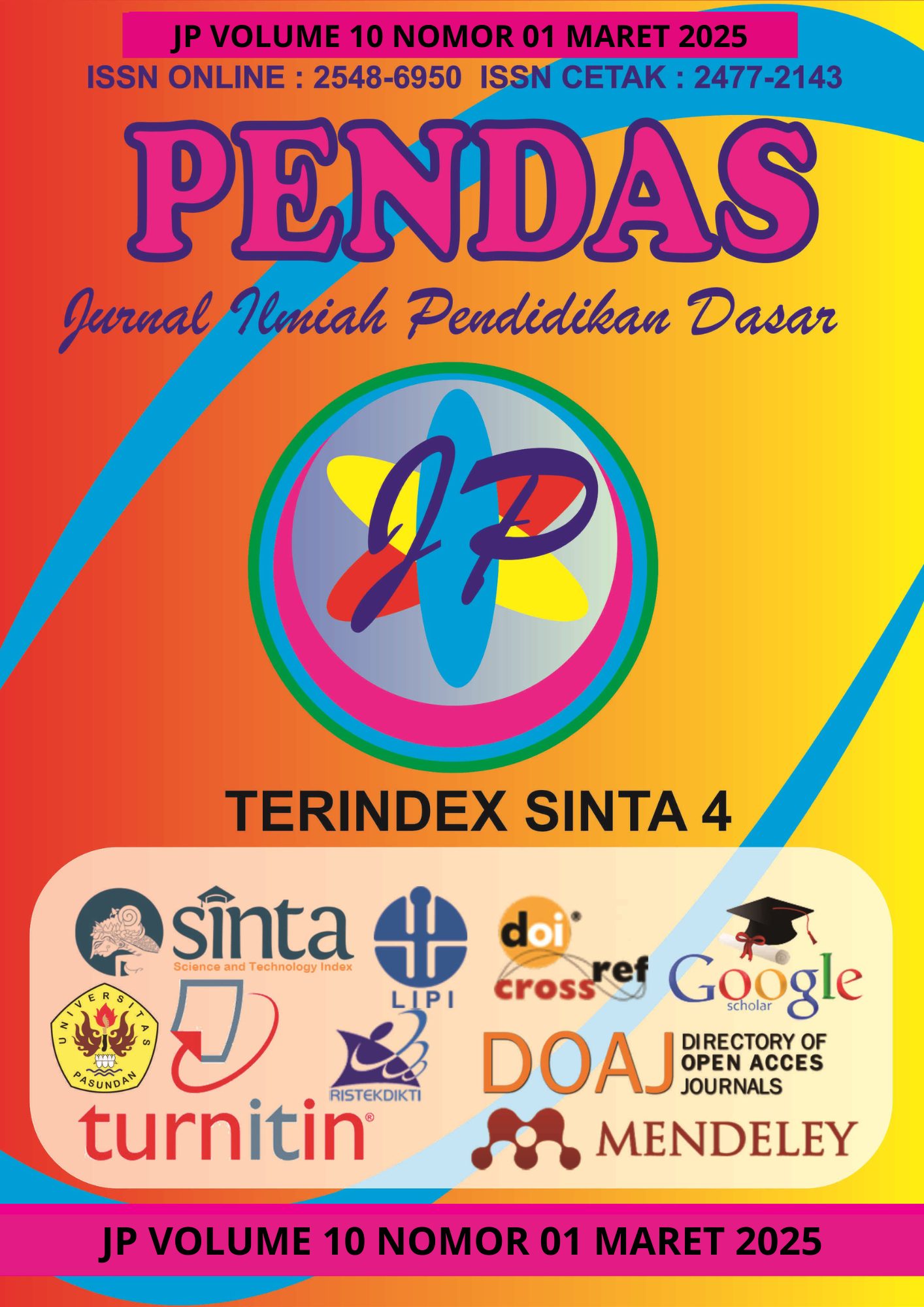TEACHERS’ PERCEPTION OF CHALLENGES IN THE IMPLEMENTATION OF ENGLISH DAY PROGRAM: IMPLICATION FOR IMPROVING STUDENTS’ SPEAKING SKILLS AND SELF-EFFICACY
DOI:
https://doi.org/10.23969/jp.v10i01.22367Keywords:
Teachers' perceptions, challenges, English Day program, speaking skills, students' self-efficacy.Abstract
This study aims to explore teachers' perceptions of the challenges in implementing the English Day program at MAN 1 Kota Pekalongan and identify its implications for the students’ speaking skills and self-efficacy. The English Day program is designed to increase the use of English in the school environment, but it faces various barriers, both from the student's and teachers' side. The research method used was qualitative with a case study design, involving in-depth interviews, participatory observation, and documentation. The research participants comprised three English teachers and ten grade XI students directly involved in the program. The results show that the main challenges in implementing the program include low student motivation and confidence, limited teacher competence in English, and lack of adequate supporting facilities.
Nevertheless, the program has the potential to improve students' speaking skills if supported by training for teachers and strengthening learning facilities. This research provides important implications for the development of English Day programs in other schools, with recommendations to improve teacher competence and create a more supportive learning environment for students to practice English.
Keywords: Teachers' perceptions, challenges, English Day program, speaking skills, students' self-efficacy.
Downloads
References
Alif, M. H., Pujiati, A., & Yulianto, A. (2020). The effect of teacher competence, learning facilities, and learning readiness on students' learning achievement through learning motivation of grade 11 accounting lesson in Brebes Regensy vocational high school. Journal of Economic Education, 9(2), 150-160.
Avillanova, A. A., & Kuswandono, P. (2019). English teacher professional development in Indonesia: the challenges and opportunities. English Review: Journal of English Education, 8(1), 41-50.
Baran, E., Canbazoglu Bilici, S., Albayrak Sari, A., & Tondeur, J. (2019). Investigating the impact of teacher education strategies on preservice teachers' TPACK. British Journal of Educational Technology, 50(1), 357-370.
Canals, L., & Al-Rawashdeh, A. (2019). Teacher training and teachers’ attitudes towards educational technology in the deployment of online English language courses in Jordan. Computer Assisted Language Learning, 32(7), 639-664.
Chen, M. R. A., & Hwang, G. J. (2022). Effects of experiencing authentic contexts on English speaking performances, anxiety and motivation of EFL students with different cognitive styles. Interactive Learning Environments, 30(9), 1619-1639.
Coronado, M. C., Feinberg, S., Fretz, M., Kwok, A., Gotlin, A., Greenheck, R., ... & Van Den Wymelenberg, K. (2021). The Impact of School Facilities on Student Learning and Engagement.
Creswell, J., W. (2022). Research Design: Qualitative, Quantitative, and Mixed Methods Approaches. SAGE Publications.
Darmawan, I. G. N., Suryadi, A., Budimansyah, D., & Susilo, S. (2024). Indonesian Education: Past, Present, and Future. Taylor & Francis.
Issa, Z., Mwakapina, J., & Nyinondi, O. (2024). Competence based curriculum in practice: English curriculum implementation prospects and challenges in Mtama District secondary schools in Tanzania. International Journal of Research, 13(5), 29-39.
Lareau, A. (2021). Listening to people: A practical guide to interviewing, participant observation, data analysis, and writing it all up. University of Chicago Press.
Lemon, L. L., & Hayes, J. (2020). Enhancing trustworthiness of qualitative findings: Using Leximancer for qualitative data analysis triangulation. The Qualitative Report, 25(3), 604-614.
Motulsky, S. L. (2021). Is member checking the gold standard of quality in qualitative research?. Qualitative Psychology, 8(3), 389.
Nurhidayah, R. (2020). The role of motivation in second language acquisition. Jurnal Ilmiah STBA, 6(2), 96-104.
Rajitha, K., & Alamelu, C. (2020). A study of factors affecting and causing speaking anxiety. Procedia Computer Science, 172, 1053-1058.
Rao, P. S. (2019). The importance of speaking skills in English classrooms. Alford Council of International English & Literature Journal (ACIELJ), 2(2), 6-18.
Safitri, R., Wahyuri, A. S., & Ockta, Y. (2024). The Impacts of the Project-Based Learning and Problem-Based Learning Models with Self-Confidence on Students’ Learning Outcomes. Indonesian Research Journal in Education| IRJE|, 8(1), 269-283.
Toro, V., Camacho-Minuche, G., Pinza-Tapia, E., & Paredes, F. (2019). The Use of the Communicative Language Teaching Approach to Improve Students' Oral Skills. English Language Teaching, 12(1), 110-118.
Tsai, M. N., Liao, Y. F., Chang, Y. L., & Chen, H. C. (2020). A brainstorming flipped classroom approach for improving students’ learning performance, motivation, teacher-student interaction and creativity in a civics education class. Thinking Skills and Creativity, 38, 100747.
Yin, R. K. (2018). Case Study Research and Applications: Design and Methods. Thousand Oaks, CA: Sage Publications.
Downloads
Published
Issue
Section
License
Copyright (c) 2025 Pendas : Jurnal Ilmiah Pendidikan Dasar

This work is licensed under a Creative Commons Attribution 4.0 International License.














































